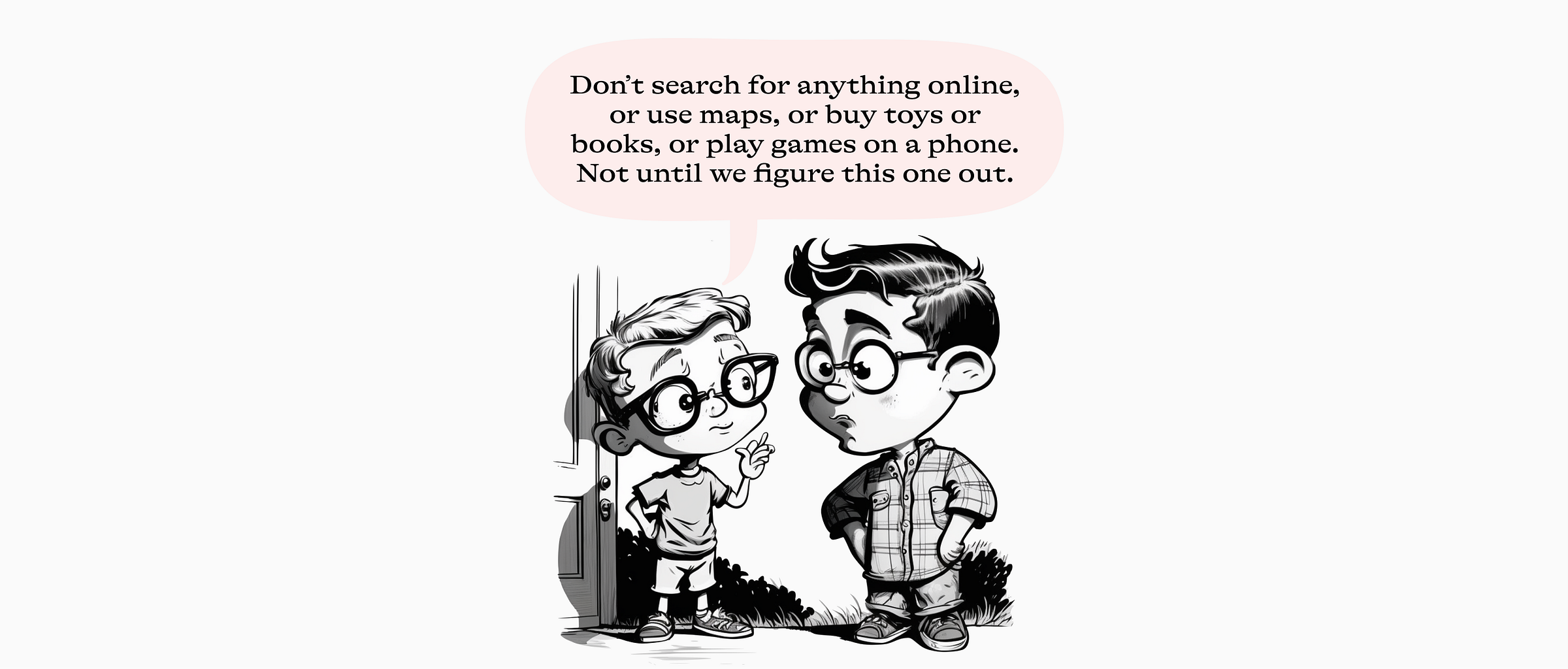Either climate change or the issue of centralization would be enough to spend your life working on. Today, both offer philosophical frameworks, and both are Big Problems.
The planet is heating up 0.14 degrees per decade, and humans are contributing (NASA reference). If this problem is important to you, there are next steps you can take: recycle and buy an electric car. Better yet: walk, bike, or take public transit. Rely on renewable energy and reduce consumption. Don’t fly. Don’t use petroleum-based products. Eat less. Limit waste and conserve water.
But, if you enter into this framework, you need more people to buy in to actually solve the problem. And that’s where we find another problem…
How do you engage people in solving problems they haven’t experienced?
Gavin Wood coined the term “web3” in 2014, describes it as the “post-Snowden” web, and proposes “we engineer the system to mathematically enforce our prior assumptions, since no government or organisation can reasonably be trusted”.
Web3 is a philosophical stance that no organization can be trusted, so let’s not keep all of our data in one place. Whether it’s data on the world’s supply of money, an identity, or a game. We’re programming people for profit, and web3 is our way out. But, who has these problems?
Who has this problem?
Most people aren’t at risk of being censored. The privacy paradox shows that despite people being aware their data is being monetized, they won’t do much about it (more on how DiD could change this). Web3 says that it’s a little more tricky to use, but you get better security, you can hold digital property rights, and be your own bank. You get programmable money and completely transparent financial transactions. But, I don’t see my data being used every day, just like I don’t feel those 0.14 degrees over ten years.
The big problem with Big Problems
We project Big Problems onto others because we need them. We can’t solve the problem without them.
I wouldn’t mind a world where solar panels were droned to my house to charge my electric car, I lived off staking income and drank spicy margaritas while watching the sun set. Believing in a future like this is, well, belief. And it takes belief to bootstrap the work for a new foundation, a new, better world with this Big Problem solved.
Once we build this base on belief, with people who buy in to the philosophical framework and believe in the problem… then we can build new experiences that are better than the pre-solution world, that everyone would enjoy (like the solar-panel-money-generating beach hut).
Like manually separating your recycling, it’s work to tolerate worse experiences because it’s better for the long term. There’s often a gap between the old and the new. And there are three reasons that Big Problems can be so difficult to solve.
The three Ps of Big Problems
Big Problems aren’t always prevalent. Or, the person or group who could do something about the problem doesn’t experience it. The problem isn’t universal.
Big Problems aren’t always persistent. The problem doesn’t happen often enough to want it solved.
Big Problems aren’t always painful.
Sometimes the problem with Big Problems, is that they’re not always prevalent, persistent, or painful.
You gotta give the people what they want
And people want their problems solved
People want problems that are painful and persistent to be solved. The more prevalent the problem, the more likely it will be solved (remember a problem is a difference between the current and desired state). Beyond the immediate problem being solved, most want something new, something that exceeds their expectations.
You can build enough of a base with people who buy into the big philosophy today. You can sell expensive electric cars, or have a decentralized experience similar to the faster and cheaper centralized version. Once you build the base, you can deliver something new that exceeds everyone’s needs, even those who didn’t initially buy in.
Climate change and centralization are both Big Problems, with groups of people operating on philosophical frameworks. Building a new thing that works for the people who believe in the problem is enough for a bit. But the products successful at moving more people over to a better world (i.e. solving Big Problems), solve the original problem and create new value. The new value brings everyone else along.
The good news? Many products are doing this today. Farcaster is building true a decentralized social network (that’s better than Twitter for some). Tesla’s are fun, fast, and happen to be electric. Plant Power has delicious plant-based fast food you wouldn’t know is plant-based.
I’m inspired by Big Problems (even with the three Ps), and people, products, and businesses that go after them. If you want more on problems, defining them, and why “who” matters: this post might be of interest to you.
This article uses AI-generated images.







